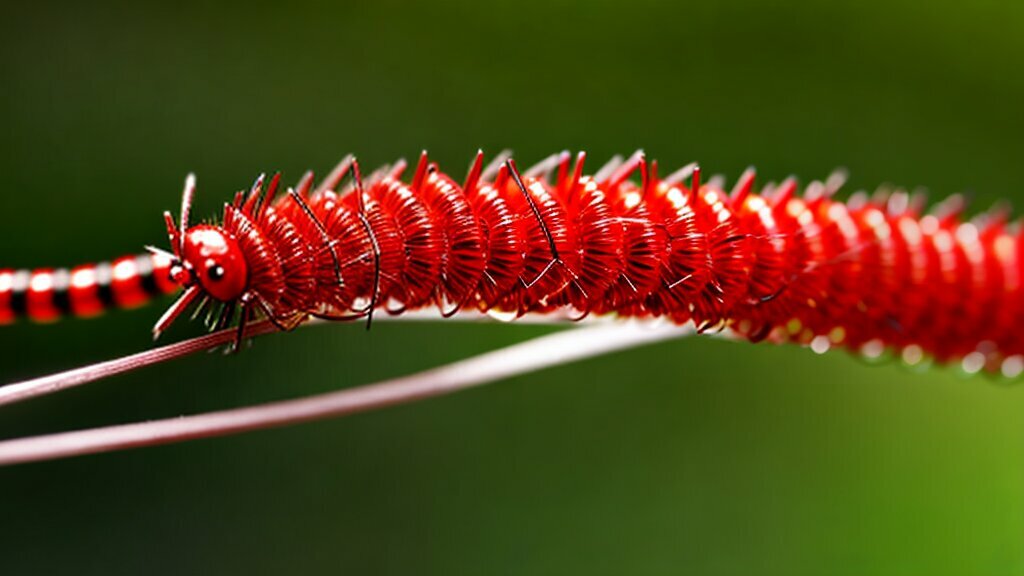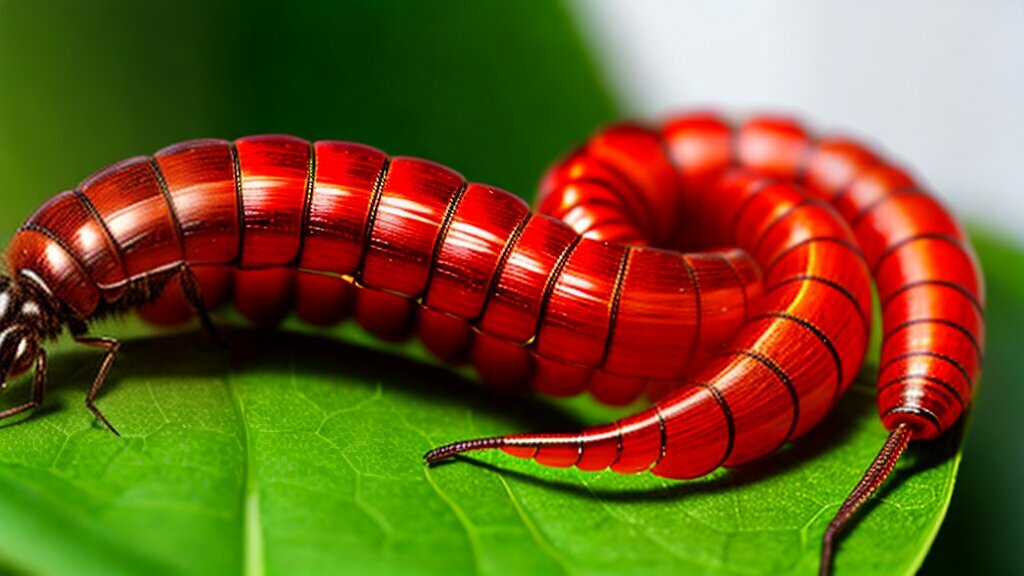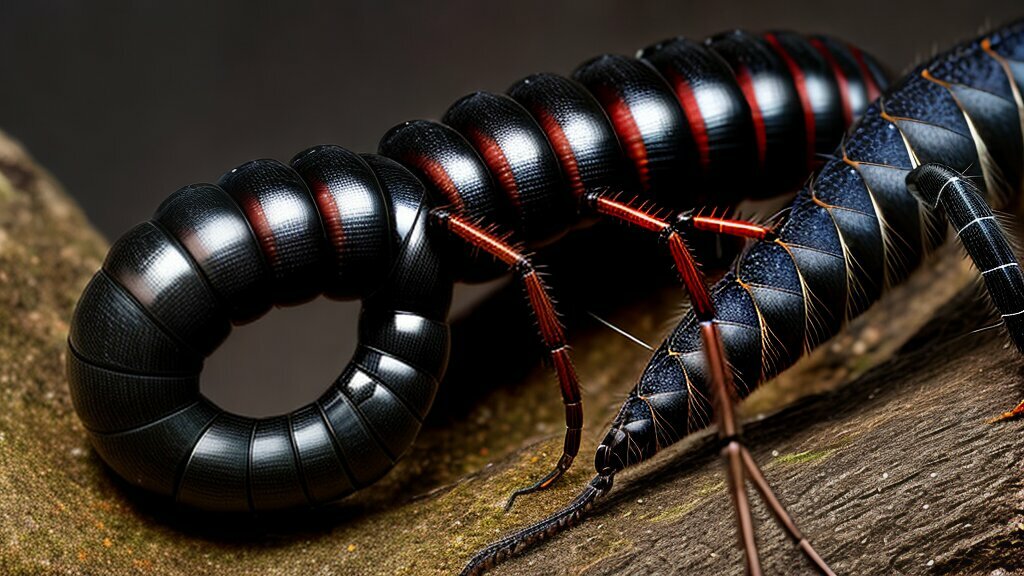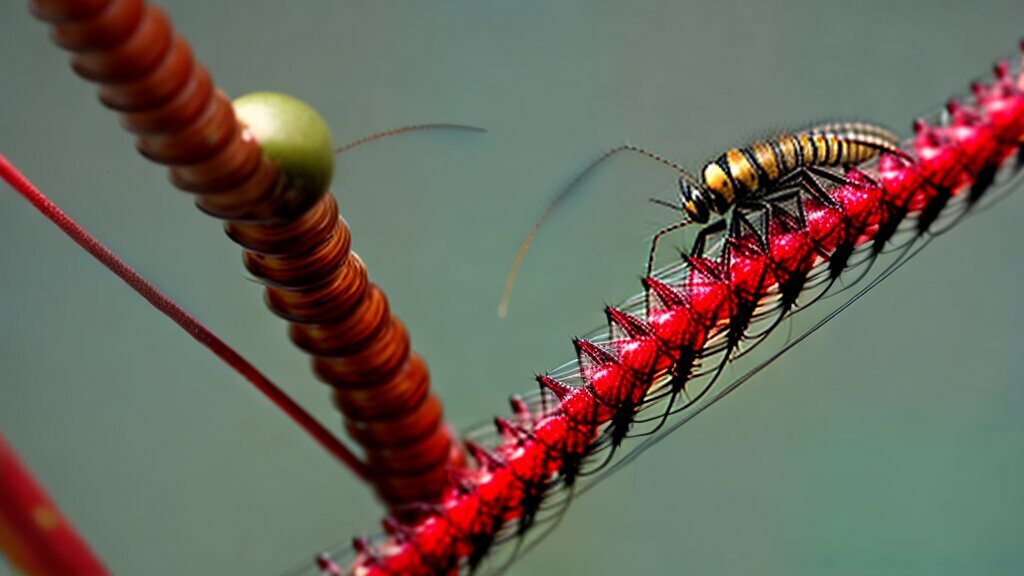Centipedes are fascinating creatures that can be found in a wide range of habitats worldwide. However, one question that often arises when it comes to these arthropods is whether or not they make webs. In this section, we will explore the web-making behavior of centipedes and investigate if all species have this ability.
Centipedes are known for their swift movements and fierce predatory nature. They are proficient hunters that use their venomous claws to capture and subdue their prey. However, not all centipedes rely solely on their physical prowess when it comes to hunting. Some species have developed webs as an additional tool to catch their prey.
While not all centipedes spin webs, some species have been observed exhibiting this behavior. The web-building habits of centipedes can vary depending on the species and their environment. Some centipedes will spin webs to create a safe retreat or to catch small insects, while others may use webs to capture larger prey such as rodents.
So, do all centipedes create webs? The answer is no. While some species have been observed spinning webs, not all centipedes have this ability. The web-making behavior of centipedes is influenced by various factors, including genetic traits and their environment.
Key Takeaways:
- Not all centipedes make webs, but some species have been observed spinning webs.
- The web-building habits of centipedes can vary depending on the species and their environment.
- The ability to spin webs is influenced by genetic traits and environmental factors.
Web-Building Behavior in Centipedes
Centipedes are fascinating creatures with interesting web-building behavior. While some species are not known to spin webs, others do so regularly. The web-spinning habits of centipedes can vary depending on their environment and genetic traits.
Studies suggest that centipedes may create webs for a variety of reasons, including to trap prey, create shelter, and protect their eggs. Some species of centipedes that are known to build webs include the house centipede, stone centipede, and bark centipede.
The spider-tailed horned viper is a venomous snake that can be found in the Middle East. This viper is known to prey on centipedes that are adept at building webs. In response, some centipede species have evolved to create more complex webs to evade their predators.
Types of Centipedes and Their Web-Spinning Habits
Not all centipedes have the ability to spin webs. Some species are more likely to build webs than others depending on their habitat and behavior. For example, house centipedes are known to build webs in homes and other indoor areas.
Other species, such as the stone centipede, build webs in their natural outdoor habitats. These webs are used to trap small insects and arthropods for food. Bark centipedes, on the other hand, create webs to protect their eggs from predators.
Overall, the web-building behavior of centipedes is complex and diverse. While some species are known for their web-spinning habits, others do not exhibit this behavior. Researchers continue to study this fascinating aspect of centipede behavior to better understand their habits and evolutionary adaptations.
The Diversity of Centipede Habitats
Centipedes are a widespread arthropod group, with around 8,000 known species inhabiting a broad range of environments worldwide. They can be found in a variety of habitats, from deserts to rainforests, and even underwater in caves and streams.
Their diverse habitats often reflect their varied physical characteristics, such as body size and shape, which are adaptations to their environment. For example, centipedes living in arid regions have a flatter body shape and longer legs to navigate through narrow crevices. In contrast, those inhabiting humid environments have shorter legs and a rounder body shape, which allows them to burrow into soil, leaves, or other suitable substrates.
These physical characteristics may also play a role in web-building behavior in certain centipede species. For instance, some larger-bodied species may be more inclined to spin webs to trap prey, while smaller species may rely on speed and agility to catch their prey.
Furthermore, the availability of prey and other environmental factors can influence web-building behavior in centipedes. Some species may build webs in areas with high prey density, while others may rely on other hunting methods in areas with sparse prey populations.
Overall, the diverse habitats where centipedes can be found play an essential role in shaping their behavior and physical characteristics. Understanding the complex relationship between their habitat and behavior is crucial in unlocking the mysteries of these fascinating creatures.
Venomous Centipedes and Web Creation
One question that arises when discussing centipedes and web creation is whether venomous centipedes have a greater tendency to build webs. While there are some species of venomous centipedes known to spin webs, it is not a universal characteristic among all venomous centipedes.
The behavior of venomous centipedes in relation to web building is complex and not fully understood. Some researchers believe that web building may be a defensive behavior for certain species, while others suggest it may be related to the type of prey they hunt. For example, some venomous centipedes are known to prey on spiders, which also build webs. It’s possible that the ability to build webs may provide a hunting advantage in these cases.
Despite these theories, there is still much research to be done on the relationship between venomous centipedes and web building. It is clear, however, that venomousness alone does not determine whether a centipede will build webs or not.
The Mystery Unraveled: Do Centipedes Make Webs?
After exploring the web-making behavior of centipedes, we can reveal that the answer to the question “Do centipedes make webs?” is not a simple yes or no.
While not all centipedes create webs, many species are known to exhibit this behavior. The type of web they spin can vary greatly, from soft silky threads to tougher, more durable strands.
Factors such as environment and genetics can influence a centipede’s web-building behavior. For example, certain species that inhabit moist environments may be more likely to build webs for protection and trapping prey.
However, venomous centipedes do not necessarily have a greater tendency to build webs than non-venomous species. While some venomous centipedes do create webs, others rely on their speed and agility to hunt their prey.
In conclusion, while not all centipedes have the ability to create webs, many do exhibit this fascinating behavior. The factors that influence their web-building habits are vast, and further research will undoubtedly uncover more mysteries about these intriguing creatures.
Conclusion
After exploring the fascinating world of centipedes and their web-making behavior, we have come to a definitive answer to the question – do centipedes make webs? The answer is yes, but not all species are known to create webs. Their web-building behavior can be influenced by various factors, including their environment and certain genetic traits.
Through our investigation, we have also discovered that certain types of centipedes are more likely to build webs than others, depending on their habitat. Venomous centipedes, while intriguing, do not have a greater tendency to build webs solely because of their venom.
It is clear that centipedes continue to intrigue researchers with their unique habits, and further studies will help us unravel more mysteries about these fascinating creatures. As we continue to learn more about centipedes, their web-making behavior will undoubtedly continue to be an area of interest and exploration.
FAQ
Q: Do centipedes make webs?
A: Yes, centipedes do exhibit web-making behavior. However, not all species of centipedes are known to create webs.
Q: What is the web-building behavior of centipedes?
A: The web-building behavior of centipedes varies among different species. Some centipedes are more likely to build webs than others, and their spinning habits can differ.
Q: Do certain centipedes build webs?
A: Yes, certain species of centipedes are more inclined to build webs. The web-making behavior of centipedes can be influenced by their environment and specific genetic traits.
Q: Do venomous centipedes make webs?
A: While there is a relationship between venomous centipedes and web creation, it is not exclusive to venomous species. Both venomous and non-venomous centipedes can exhibit web-building behavior.
Q: What is the definitive answer to “Do centipedes make webs?”
A: The answer is that centipedes do exhibit web-making behavior, but not all species are known to create webs. Various factors, including their environment and genetic traits, can influence their web-building habits.





